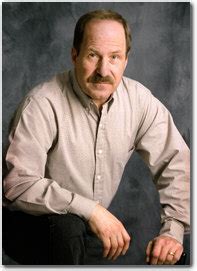A Quote by Lydia Hearst
And I think when you're playing someone who is a real person, it's extremely important to take the time and put in the effort to learn about who they are to be able to respectfully portray that.
Related Quotes
Change is healthy and useful. It has to be fought for most of the time. It's not inevitable. It takes real leadership and real effort. But I think it's really important not to take yourself too seriously. Dwight Eisenhower used to have a rule that you should always take your job seriously but not yourself.
The most important thing about an astronaut is you have to take for a given a person's done pretty well in school, has the intelligence and all of that to learn new systems and new things. But after that, the most important thing I think is being able to get along with others. Flexibility and teamwork, those issues because as we fly longer and longer in space, those are really important factors, even on short shuttle missions, those are important factors, to put a crew together that can work together effectively as a team, that can get along.
There are things that I really find important, and that we need to remind ourselves of. When you think about disability, do you really think about it? Someone who's a full-time trainer or a boxer, someone who's got a major disability, but who doesn't let that get in his way, that's a really good message for someone who is able-bodied. It can make them think, 'Wow, I suppose I could be doing better for myself.'
Sometimes perception is almost more important than the skill level of an actor. And if you give too much away, you have nothing to take for yourself and put onscreen. If people feel like they know you too well, they won't be able to indentify with the character you're trying to portray. Or they'll feel that you're just playing yourself, and then you just become a personality actor. And that's the death of any actor.
The reason you go to university is to be taught, is to learn how to think more clearly, to call into question the ideas that you came with and think about whether or not they are the ideas you will always want to hold. A university education at its best is a time of confusion and questioning, a time to learn how to think clearly about the values and principles that guide one's life. Of course, it's also a time to acquire the skills needed for jobs in the "real world," but the part about becoming an adult with ideals and integrity is also important.
The wonderful thing about books is that they allow us to enter imaginatively into someone else’s life. And when we do that, we learn to sympathize with other people. But the real surprise is that we also learn truths about ourselves, about our own lives, that somehow we hadn’t been able to see before.









































